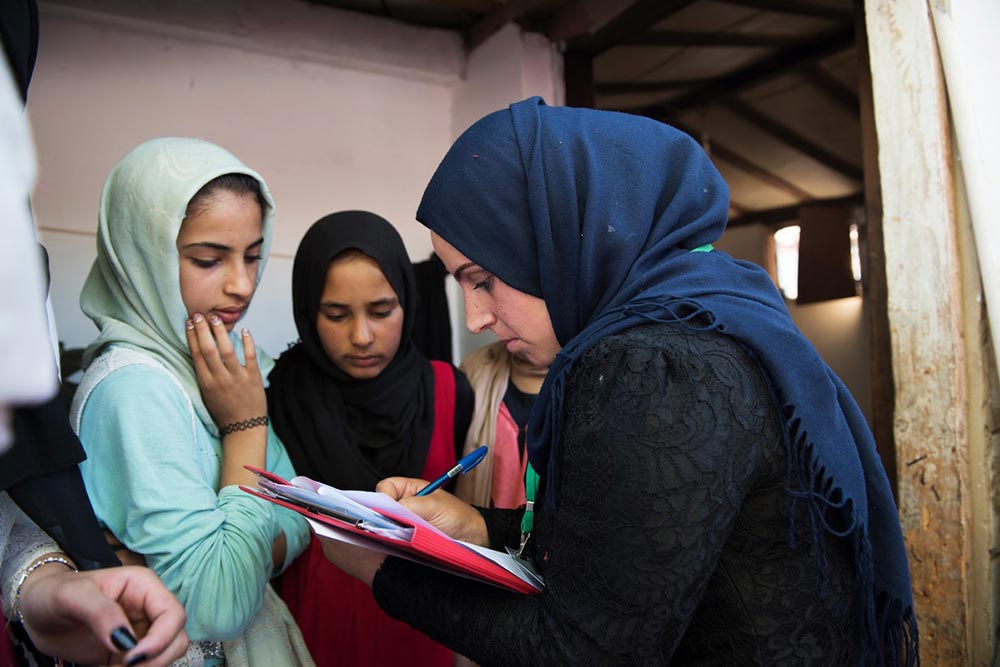Country Profiles
Norway
Parliamentary election was held in Norway autumn 2021, and the Labour Party and Centre Party formed a minority government, following eight years with a centre-right coalition government. The new government has women’s bodily autonomy as one of their six priority areas for Norwegian ODA. In their political platform Hurdalsplattformen, the Norwegian government states that they want to strengthen Norwegian efforts, establish new alliances, and increase support for family planning, contraception, and safe abortions. The Minister of Development has also been vocal about the importance of comprehensive sexuality education (CSE), and an earmarked funding for this purpose was adopted in the ODA budget for 2022.
Norway’s total expenditure to ODA in 2021 was 4.1 billion Euros (NOK 40,1 billion). And the government is committing to spend 1% of GNI on international development. However, the government proposed great cuts to ODA in the 2022 budget, due to the war in Ukraine and expected arrival of refugees. Large parts of the proposed cuts were renegotiated back, after great pressure from the Socialist Left Party and strong requests from civil society.
Policies & funding
Norway has over years been a strong supporter to SRHR. Norway increased support to SRHR following the reinstatement of the USA “Mexico City Policy”. This was done partly through the SheDecides initiative and the FP2020 Summit in July 2017.
Norway has strengthened its SRHR policies over the past years, such as adopting the Action Plan for Women’s Rights and Gender Equality in Foreign and Development Policy (2016), the Humanitarian Strategy (2018), the Action plan on Women, Peace and Security (2019), and the Strategy to Eliminate Harmful Practices (2019). However, the two first-mentioned strategies have now expired, and no new strategies are in the pipeline. The government has, on the other hand, prioritized developing a new, updated Guideline for sexual and reproductive health and rights (2022), intended for Norwegian foreign missions. In 2021, the Norwegian government adopted 16 Partner Country strategies for bilateral development cooperation for 2021 – 2023, and all of them emphasize the importance of gender equality, and in some is SRHR mentioned as an element in achieving this.
During the Nairobi Summit in 2019, Norway made great financial and political commitments to SRHR, including 1 billion Euros (9,6 billion NOK) to SRHR in 2020-2026, 76 million Euros (760 million NOK) to eliminate harmful practices in 2020-2023, and 100 million Euros (1 billion NOK) to prevention of GBV/SGBV in humanitarian crises for 2019-2021. Finally, Norway committed to increase the percentage of bilateral development assistance that has women’s rights and gender equality as a primary or significant goal from 33% to 50%. In June 2021, Norway reaffirmed its commitments to SRHR during the Generation Equality Forum (GEF) by committing to the Action Coalition on Bodily Autonomy and Sexual and Reproductive Health and Rights (SRHR), however no new financial commitments were made.
Despite the financial commitments made to SRHR during the Nairobi Summit in 2019, Norway allocated slightly less funds to SRHR in 2020, than in the previous years 2018 and 2019 (according to the Norwegian method for calculating SRHR funding). The Norwegian Minister of International Development, Anne Beathe Tvinnereim confirmed this in November 2021 stating that Norway was lagging behind with 25 million Euros (250 million NOK) to be on track to fulfil the commitments made in Nairobi. Tvinnereim confirmed that the new government would work to close this gap in the upcoming years. In 2021 levels of ODA funding to SRHR again increased to 167 million Euros (1.7 billion NOK).
Internationally vocal
Norway remains vocal in global negotiations on advancement of SRH/FP such as the UN Commission on Population and Development (CPD) and the UN Commission on the Status of Women (CSW). Norway has also in 2022 actively participated in the UN Transforming Education Summit, stating that comprehensive sexuality education is one of Norway’s main priorities in the summit.

Key documents
- Country factsheet 2021-2022-Norway.pdf
- Action Plan: Women’s Rights and Gender Equality in the Foreign and Development Policy 2016-2020. Extended to 2021, new Action Plan to be adopted in 2022.
- White paper: Partner Countries in the Development Policy (2017-2018).
- White paper: Norway´s Role and Interests in Multilateral Cooperation (2018-2019).
- Action Plan: Norway´s Humanitarian Strategy: An effective and integrated approach 2019-2023.
- Action Plan: Norway´s International Strategy to Eliminate Harmful Practices 2019-2023,
- Press release: Norway´s commitments to the Nairobi Summit (2019).
- White paper: Norway´s Action Plan to Achieve the Sustainable Development Goals (SDGs) by 2030 (2020).
- Action Plan: Action plan for continued reduction in the number of abortions – information and availability 2020 – 2024.
- Political Platform: The Norwegian Government’s political platform 2021 – 2025.


